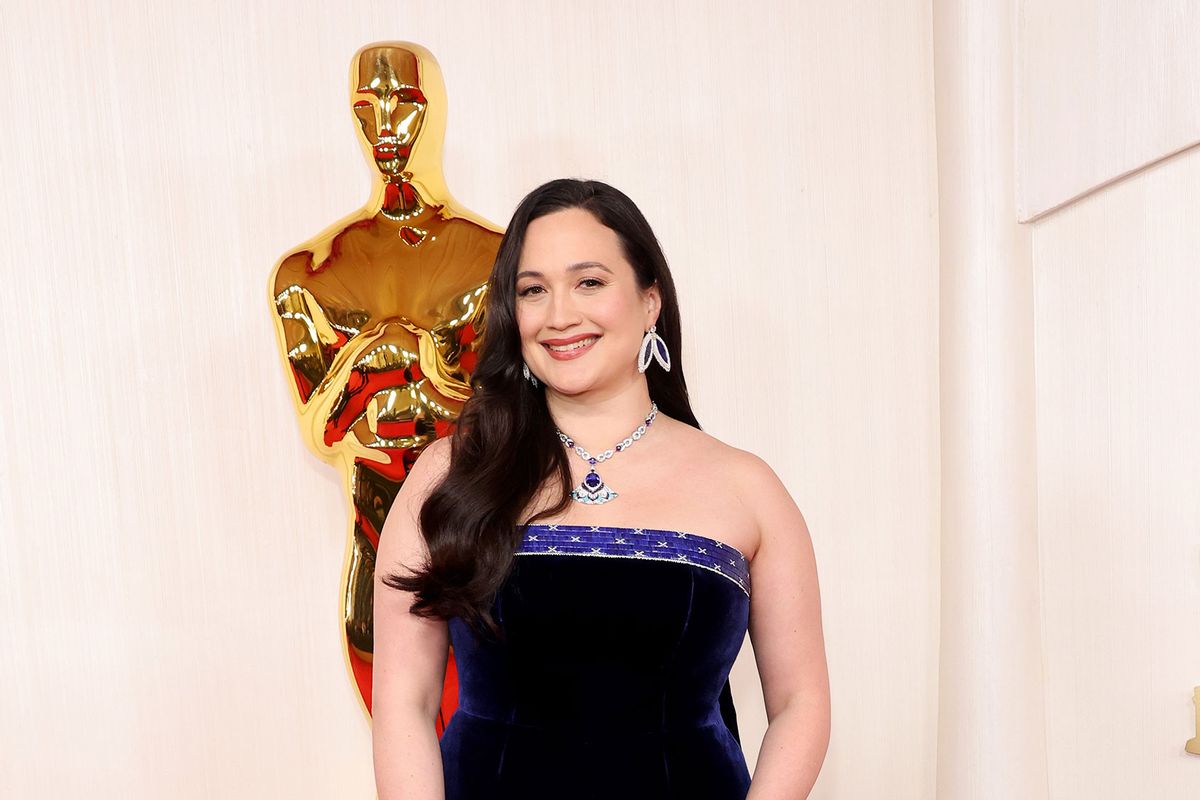The long, grueling awards season was supposedly leading to a historic moment for first-time Oscar nominee Lily Gladstone — until it didn't.
The "Killers of the Flower Moon" actress was the first Native American person nominated in the competitive lead actress category. During awards season, cinephiles and critics alike predicted that Gladstone would take home the gold statute. Especially since she had already won the Golden Globe and Screen Actors Guild Awards for her performance; all that was left for the actress to take was the esteemed Oscar. Even the night felt like it was primed for Gladstone as the Osage Nation performed their film's nominated song "Wahzhazhe (A Song for My People)" at the awards ceremony.
But alas, in a close competition, Emma Stone snagged the prize for her performance in "Poor Things." The loss felt shocking and demoralizing even though there was always a chance for Stone to snag the award. But it felt all the more heightened as we glance at history.
Out of the total 78 best actress wins, only two women of color have ever won the award. The second woman of color and first Asian woman to win the award, Michelle Yeoh, only won it last year at 60 years old. The first was Halle Berry in 2002, also making her the first Black woman to win. But mostly, Gladstone's snub sheds light on the long-standing and complicated history the prestigious film awards have with Indigenous actors.
While Gladstone was the first Indigenous American nominated for best actress, they aren't the only Indigenous actor in history nominated in the major categories. Even though the Academy has recognized some Indigenous actors in supporting actor categories, these nominees have never been winners. That's why Gladstone's historic nomination was supposed to be different. Nearly five decades after the first Indigenous person was nominated, there is still no winner. This predicted win was supposed to be the door that finally blew wide open for Indigenous actors in Hollywood.
Before Gladstone's nomination, more than 50 years ago, actor and chief Dan George, was nominated for supporting actor for his role in “Little Big Man” in 1970. It made him the first Indigenous North American acting nominee in Oscar history. Twenty years later, Graham Greene followed, nominated for supporting actor in 1990 for the movie “Dances with Wolves.” Another Indigenous North American nominated for an acting category was Mexican actress Yalitza Aparicio in 2019 for her lead role in "Roma."
However, these few acknowledgments are not enough to show a wide array of Indigenous representation in film especially since most of the nominations were in the last century. In actuality, it only amplifies the lack of Indigenous actors in the conversation, reinforcing the Oscars' abysmal track record with awarding and acknowledging Indigenous talent. It echoes the empty sentiment of parading diversity and inclusion around just to dangle a win in front of a qualified person without any real hope of achieving it. It's like moving the goalpost just as the person catches up when it's already difficult enough to get to the starting line.
That's exactly what actress Sacheen Littlefeather's historic speech at the Oscars in 1973 addressed. The actress took the place of Marlon Brando when he won best actor for his role in "The Godfather." Brando, a strong proponent for Native American justice, refused to accept the award and sent Littlefeather to decline it for him. But she was met with hostile boos and anger from the audience that even led to actor John Wayne threatening her with physical violence and Clint Eastwood mocking her during the awards show.
During the speech, Littlefeather said that Brando cannot accept the award because of "the treatment of American Indians today by the film industry and on television in movie reruns, and also with recent happenings at Wounded Knee." Nearly 50 years later in 2022, the Academy issued a formal apology for the vitriolic treatment she had received after the speech.
"The abuse you endured because of this statement was unwarranted and unjustified. . .The emotional burden you have lived through and the cost to your own career in our industry are irreparable," the letter read. "For too long the courage you showed has been unacknowledged. For this, we offer both our deepest apologies and our sincere admiration."
Despite the recognition of the mistreatment of Littlefeather, there has been controversy that Littlefeather was not actually half Native American as she claimed but actually half Mexican. The San Francisco Chronicle highlighted there were no documents proving her Native heritage that she claimed on her father's side. Her biological sisters said, "It was more prestigious [to Sacheen] to be an American Indian than it was to be Hispanic in her mind."
While Littlefeather's identity may be up for debate, it still does not take away from the sentiment. For decades, people have been screaming into dead air about acknowledging the hurt and mistreatment of Indigenous people in Hollywood.
Gladstone's nomination was a chance at doing just that. A chance of rectifying how Indigenous people are still less than one-quarter of one percent of all speaking roles in Hollywood, USC Annenberg reported after studying the top-grossing films in the last 16 years. Even though nearly 3% of the U.S. population is of Native American ancestry. However, this just goes to show that, according the study's researcher Stacy L. Smith, “Lily Gladstone’s role in 'Killers of the Flower Moon' is quite literally an anomaly in Hollywood.”
All we can hope is that Gladstone's nomination and work in "Killers of the Flower Moon" will have an everlasting impact on the way the industry sees Indigenous actors and the roles they are deserving of even after years of being passed over for their white counterparts. Like Gladstone said in her Golden Globes acceptance speech, “This is for every rez kid, every little urban kid, every little Native kid out there who has a dream.”
Read more
about Lily Gladstone



Shares